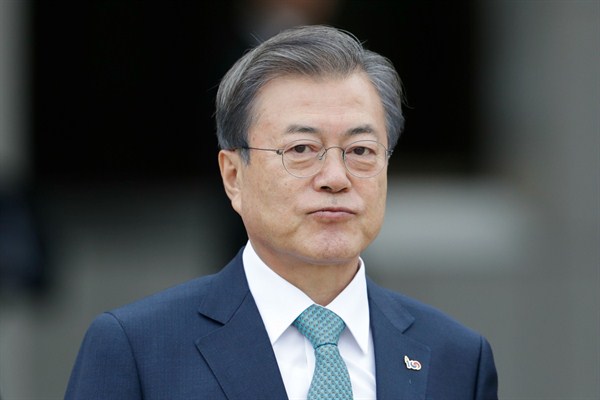As South Korean President Moon Jae-in heads into his third year in office this week, he faces a familiar political burden. Ever since South Korea’s transition to democracy in the late 1980s, its presidents have been limited to a single five-year term. That stipulation in the constitution, which otherwise grants substantial political power to the presidency, was intended as a constraint on the executive branch following decades of authoritarian rule. It also tends to cause the rapid onset of lame-duck syndrome, as most modern-day South Korean presidents see an average decline in both approval ratings and political capital over the course of their tenure.
Recent public opinion polls show that Moon is not immune to this trend. A survey conducted by Gallup Korea last week found that 45 percent of South Koreans approve of Moon’s performance as president. That is a respectable number and is actually higher than most of his predecessors after two years in office, but it is a far cry from the 83 percent approval he enjoyed in April 2018, just after the first inter-Korean summit he held with North Korean leader Kim Jong Un, in the border village of Panmunjom.
As part of its survey, Gallup asked respondents to rate Moon’s performance in seven major areas. He scored a respectable 45 percent for foreign policy and his approach to North Korea, but fared worst on economic policy, where only 23 percent gave him a positive assessment. South Korea’s economy shrank by 0.3 percent during the first three months of 2019, its worst quarterly performance since the 2008 financial crisis. Exports, the pillar of the economy, fell for the fifth straight month in April.

